Low and Slow
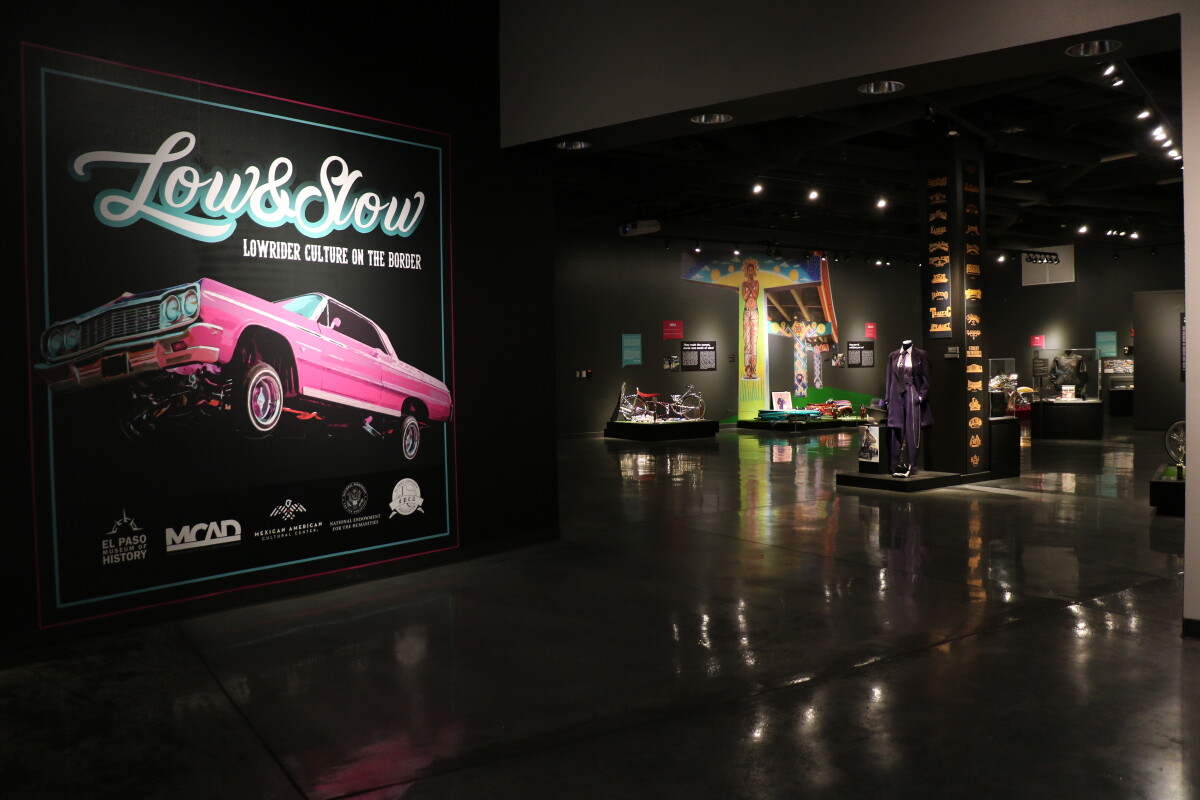
Low and Slow
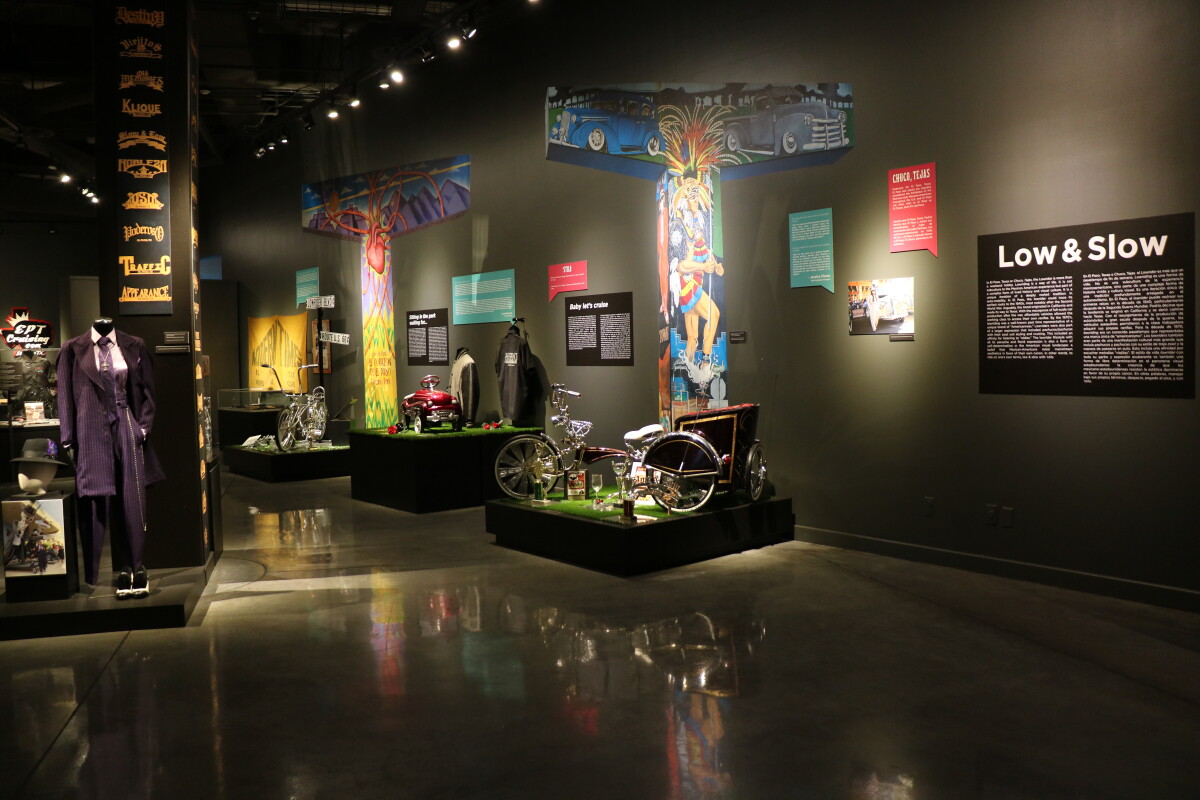
Low and Slow
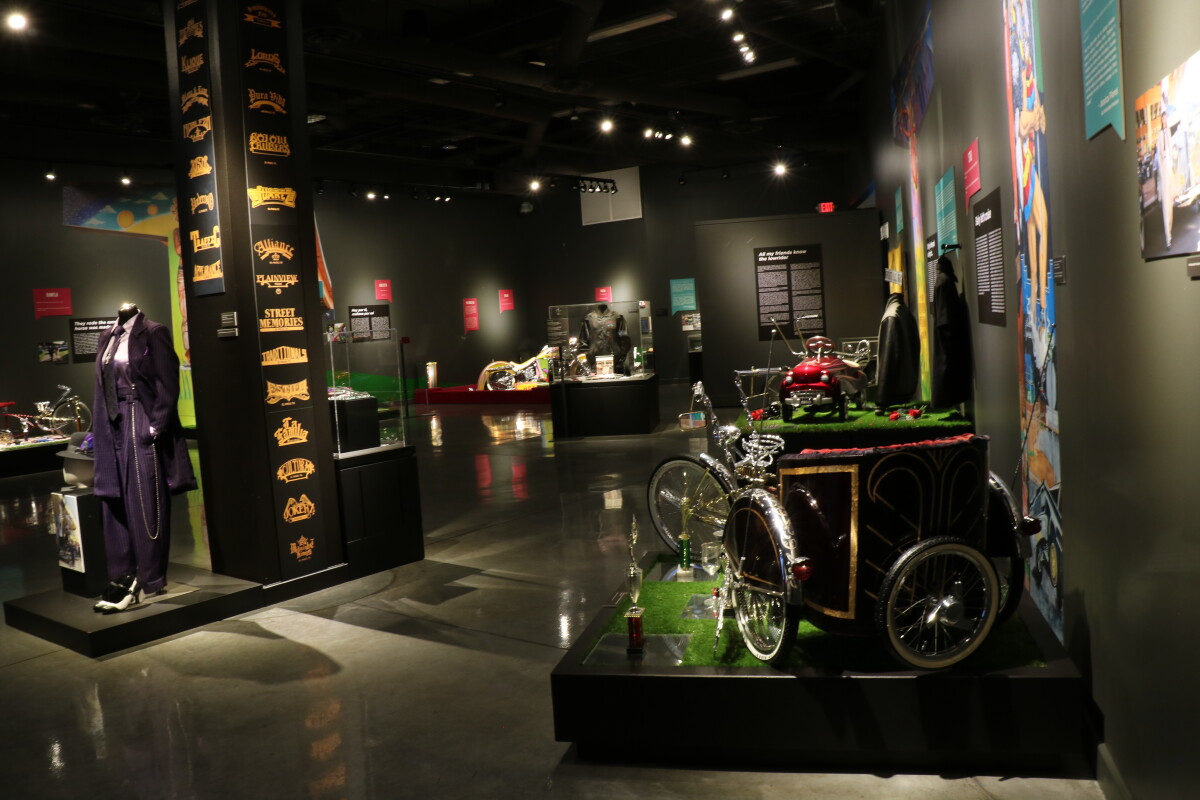
Low and Slow
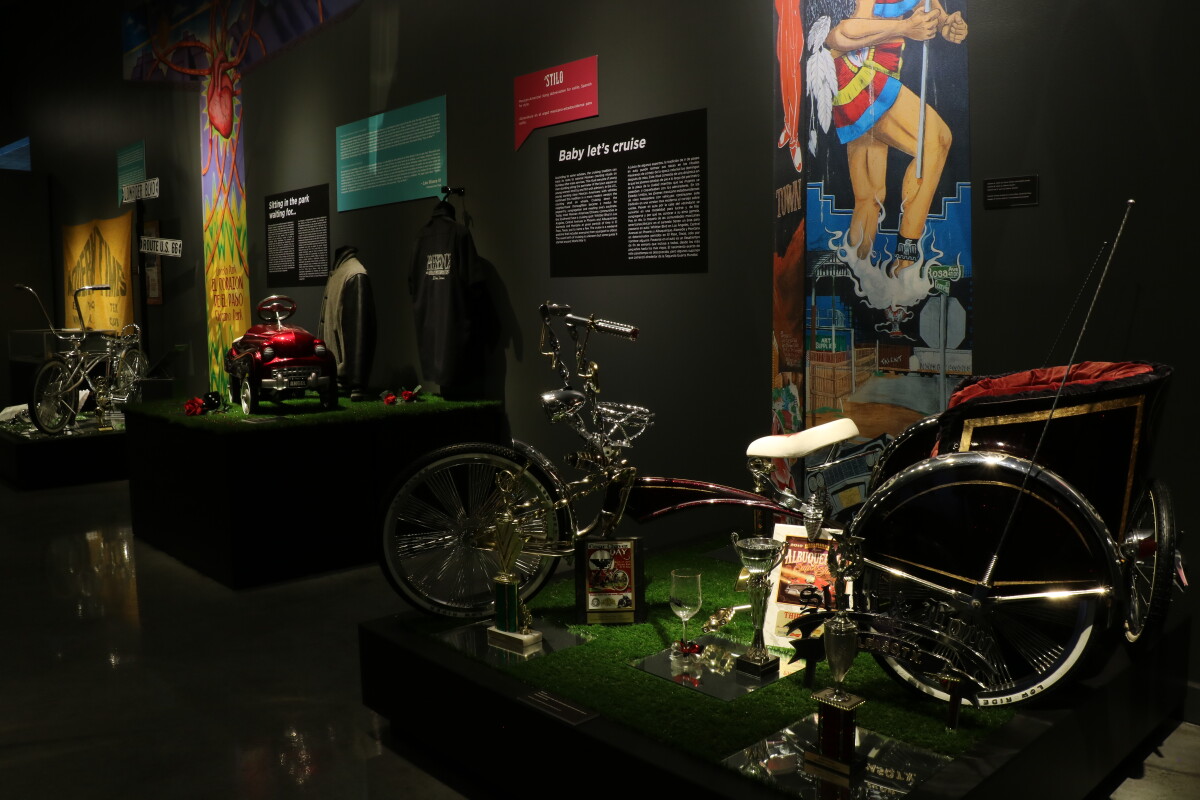
Low and Slow
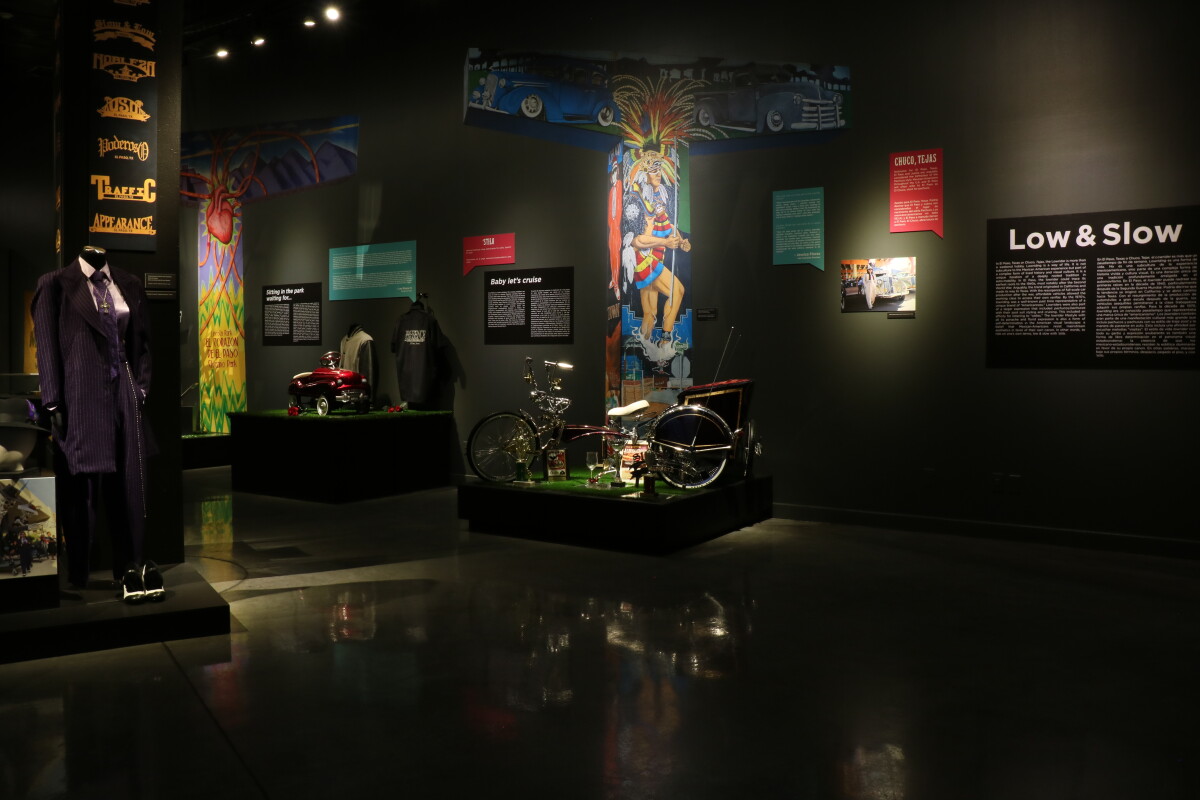
Low and Slow
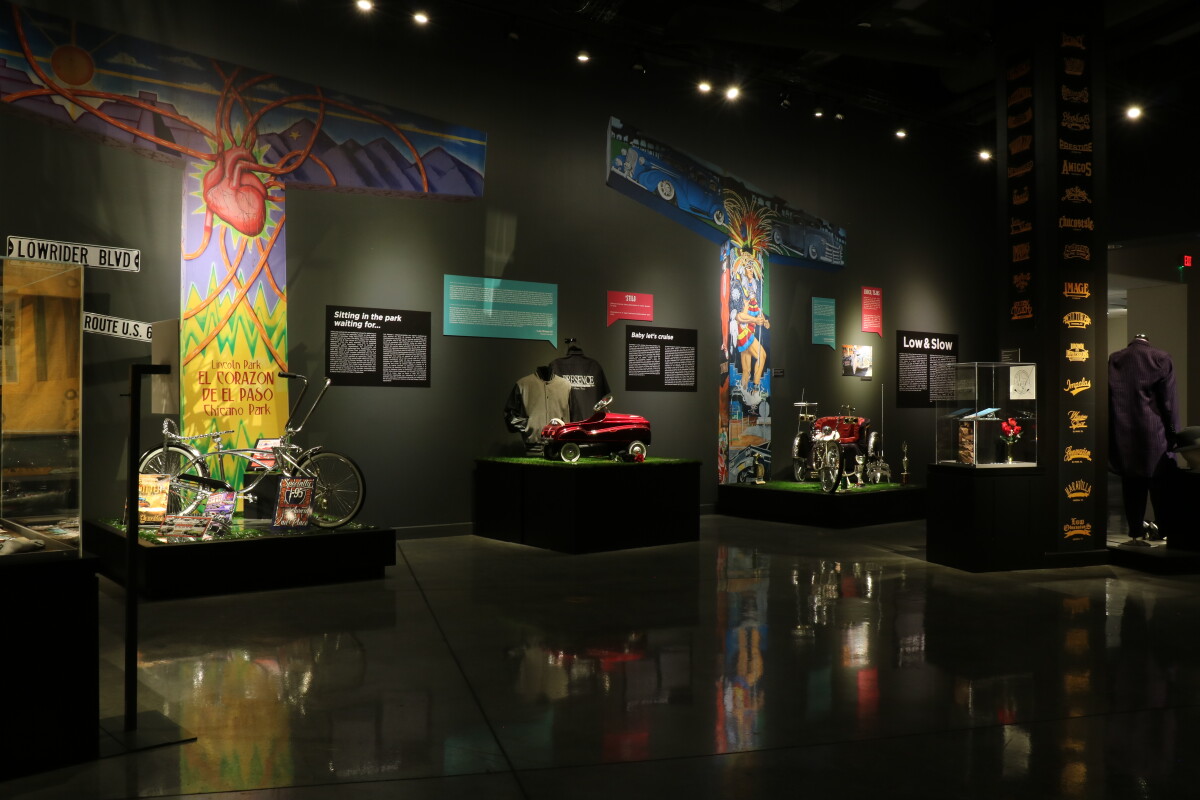
Low and Slow
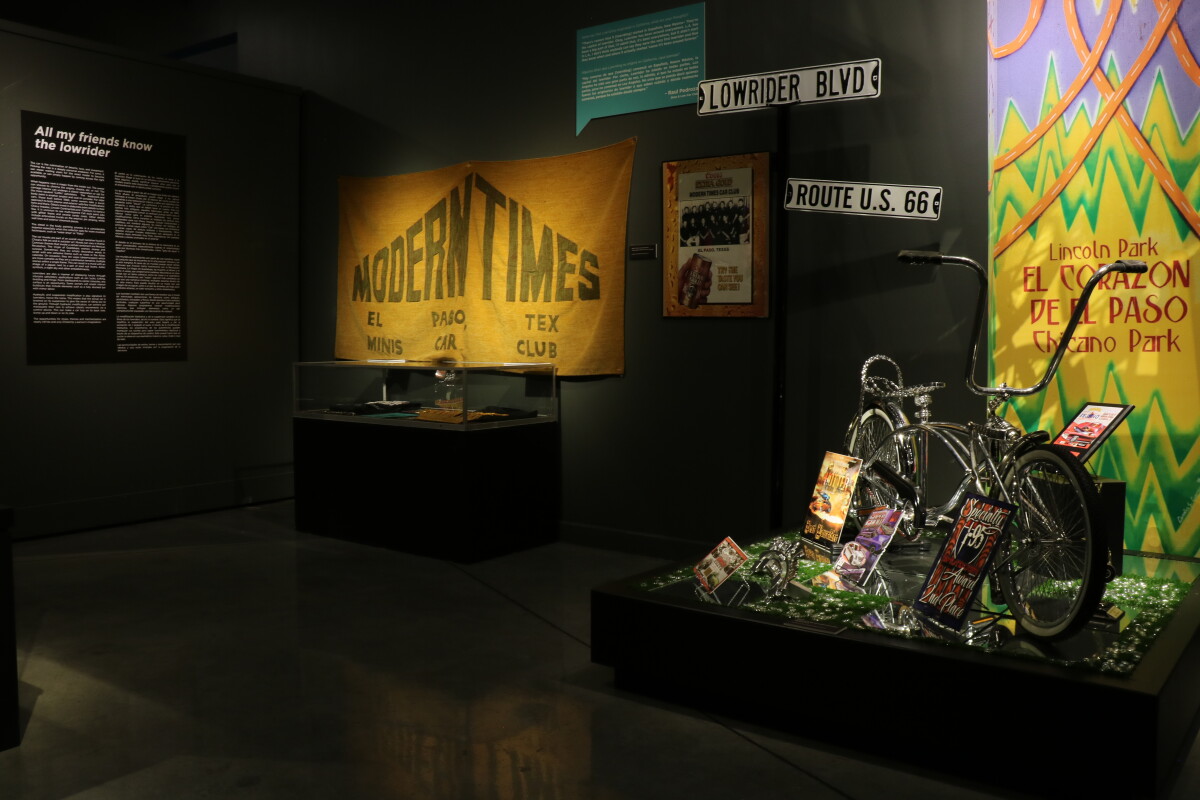
Low and Slow
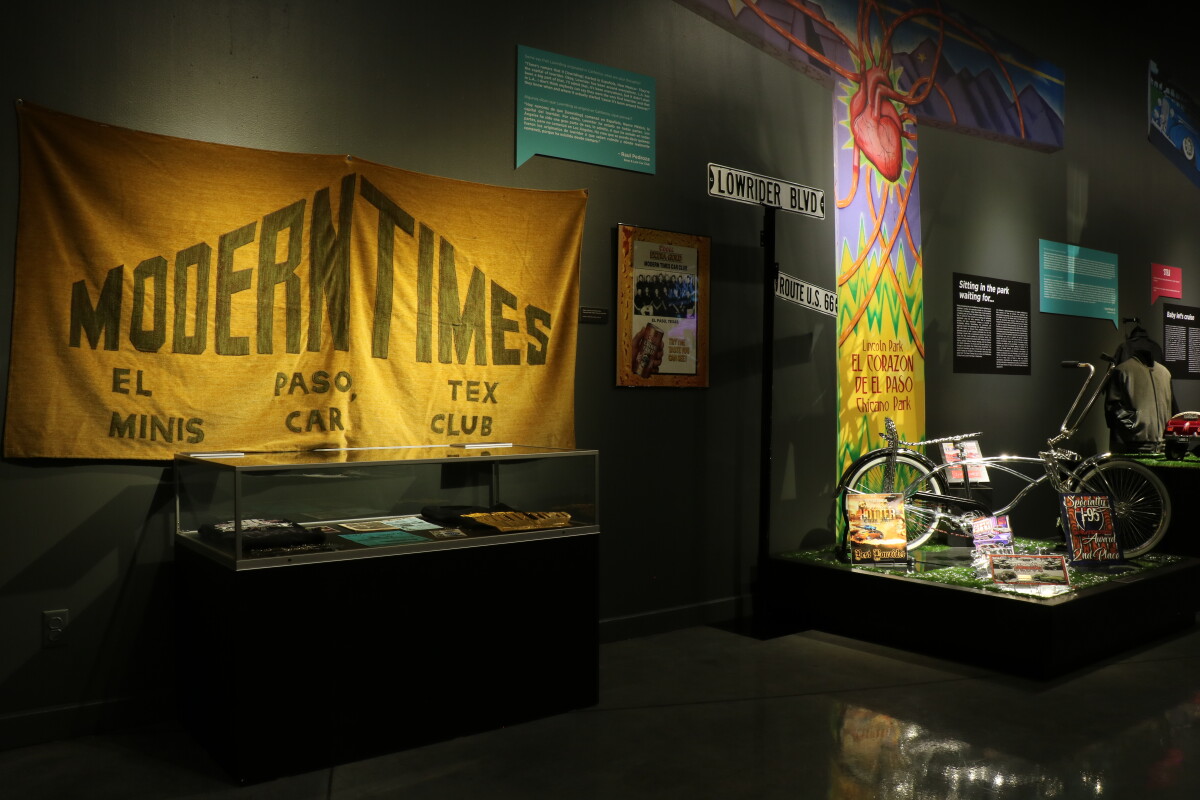
Low and Slow
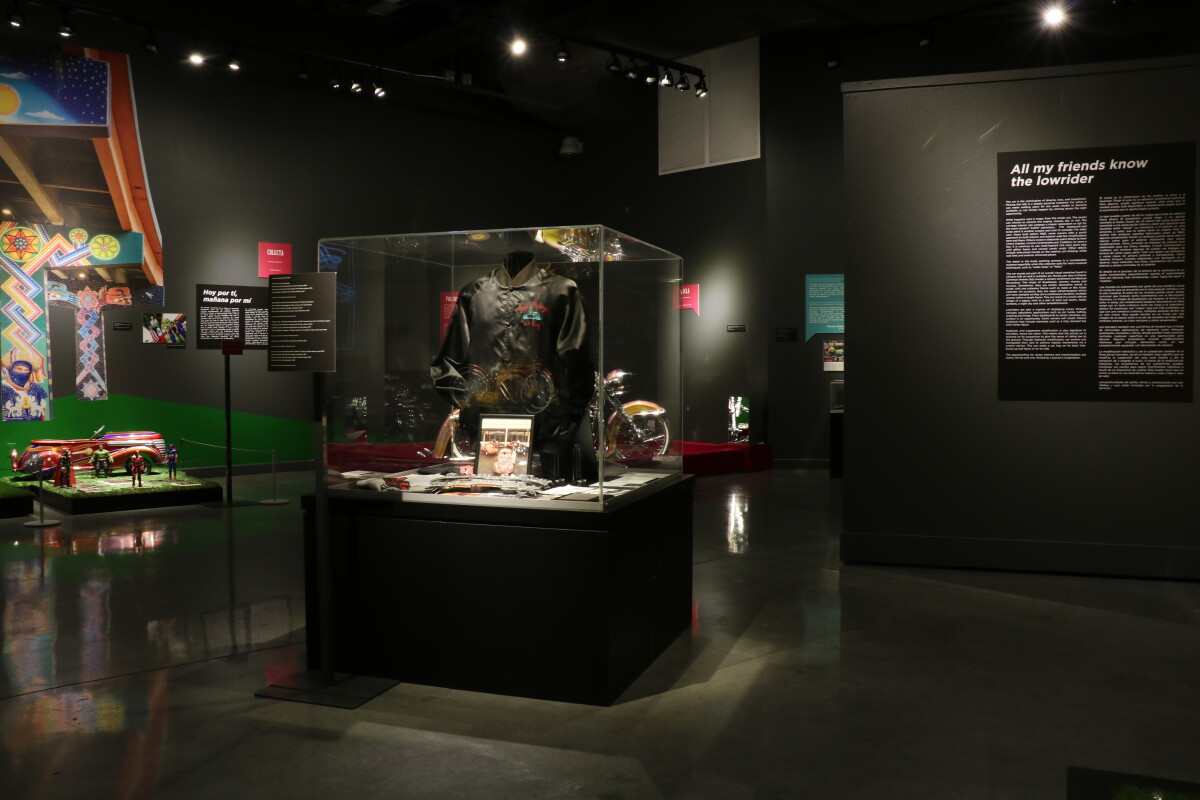
Low and Slow
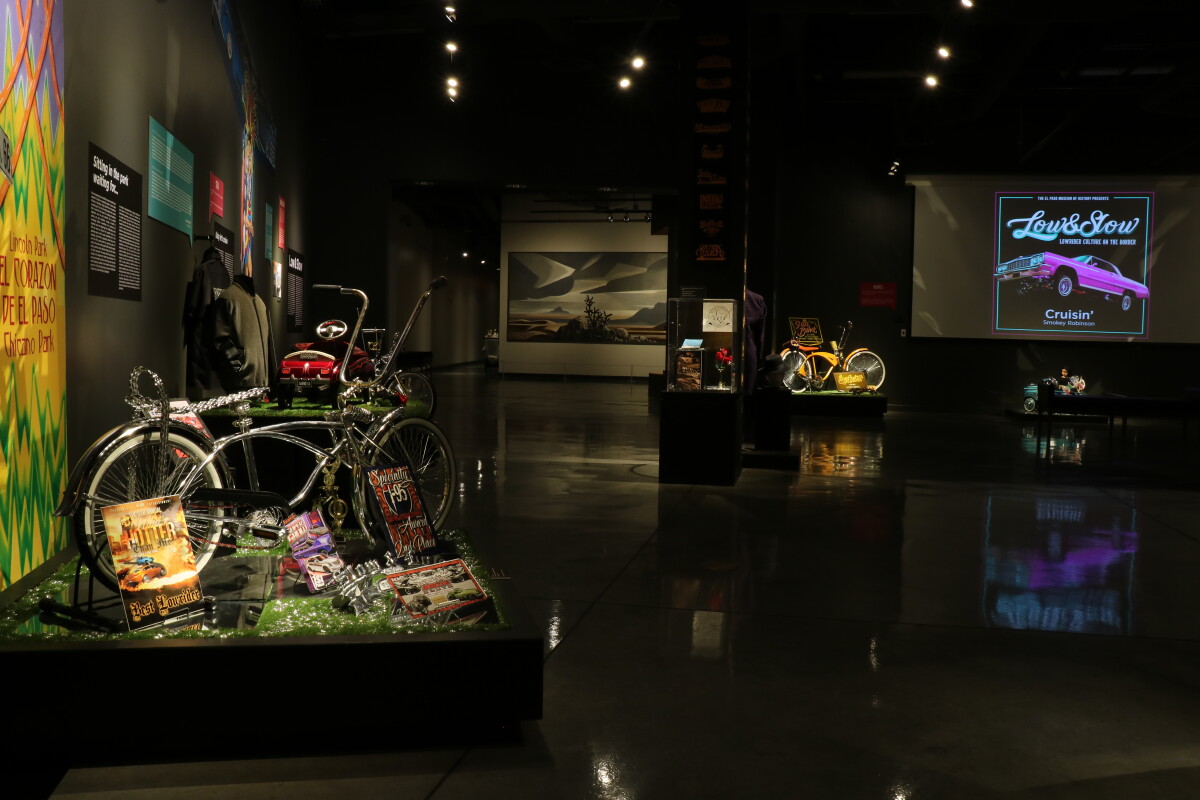
Low and Slow
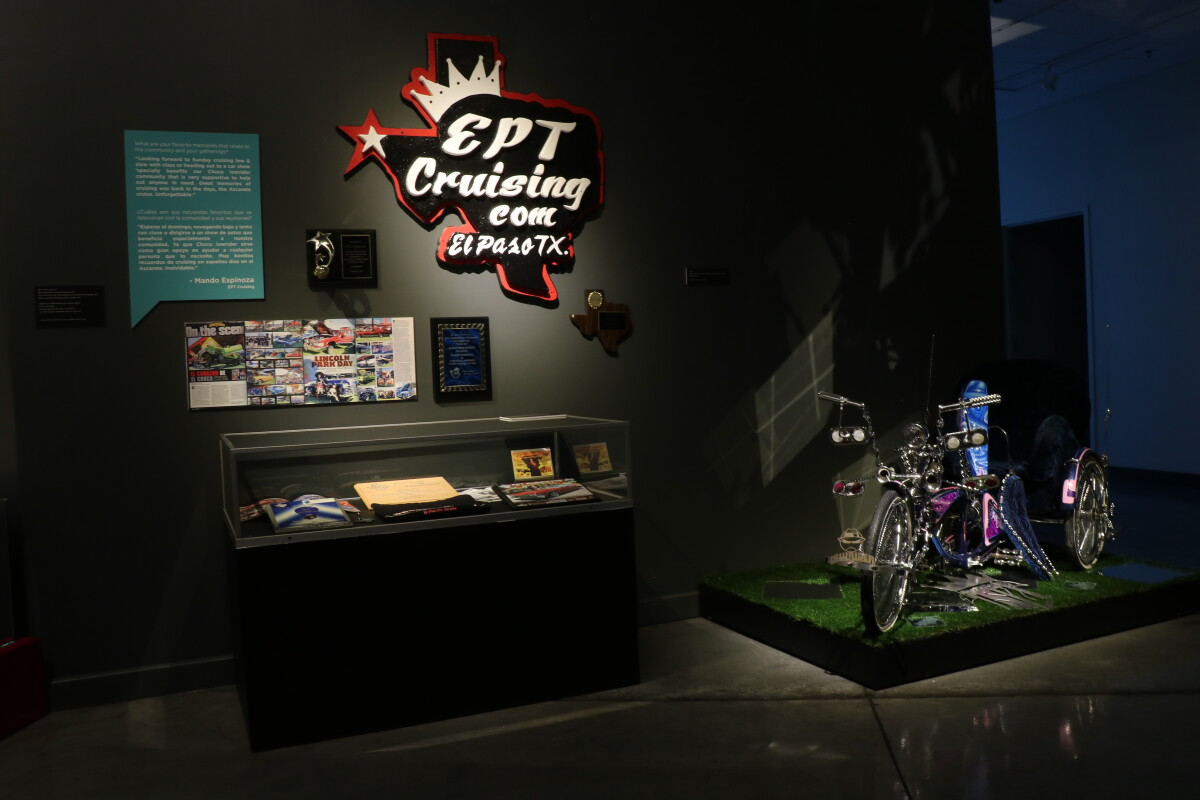
Low and Slow
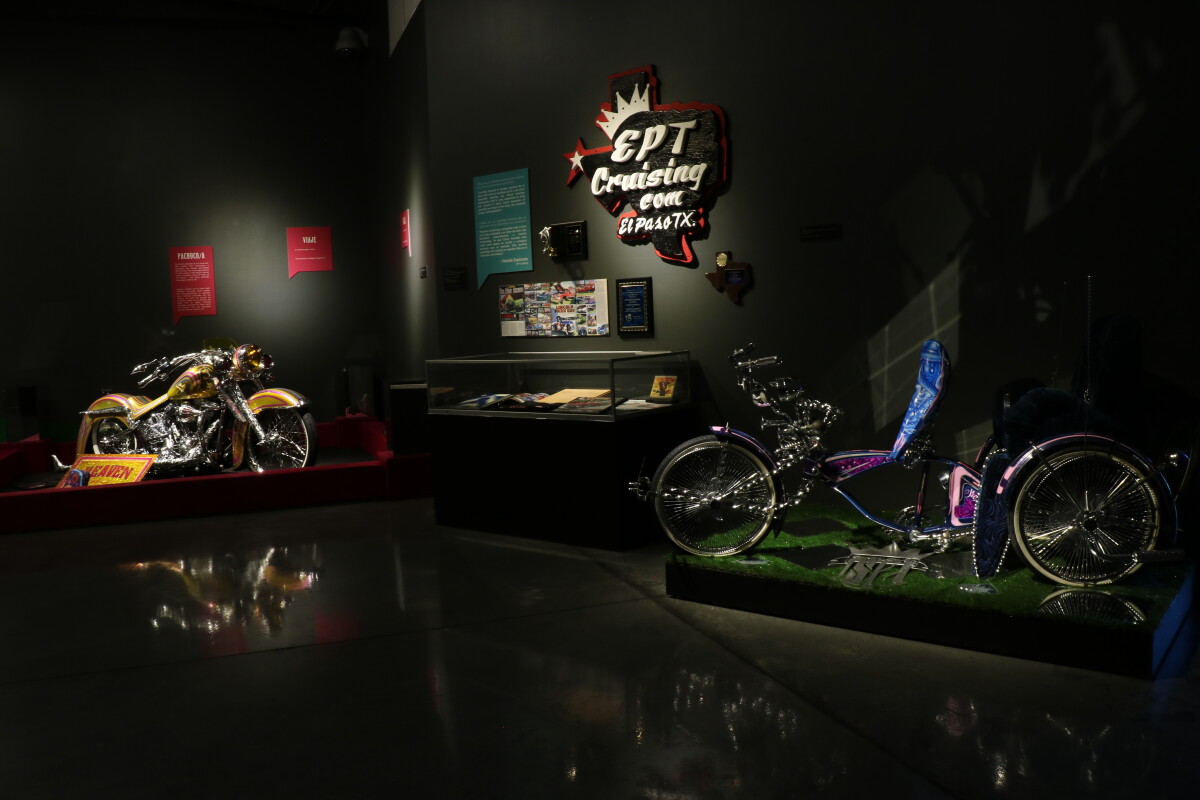
Low and Slow
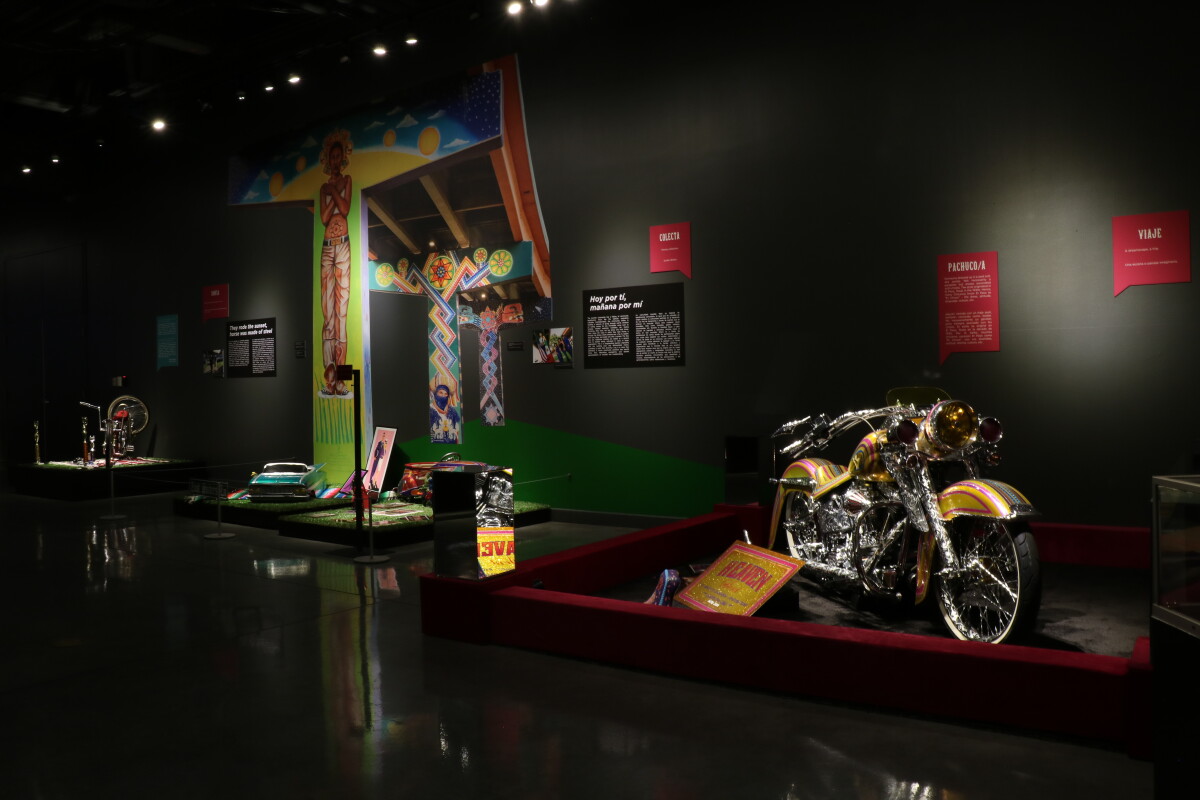
Low and Slow
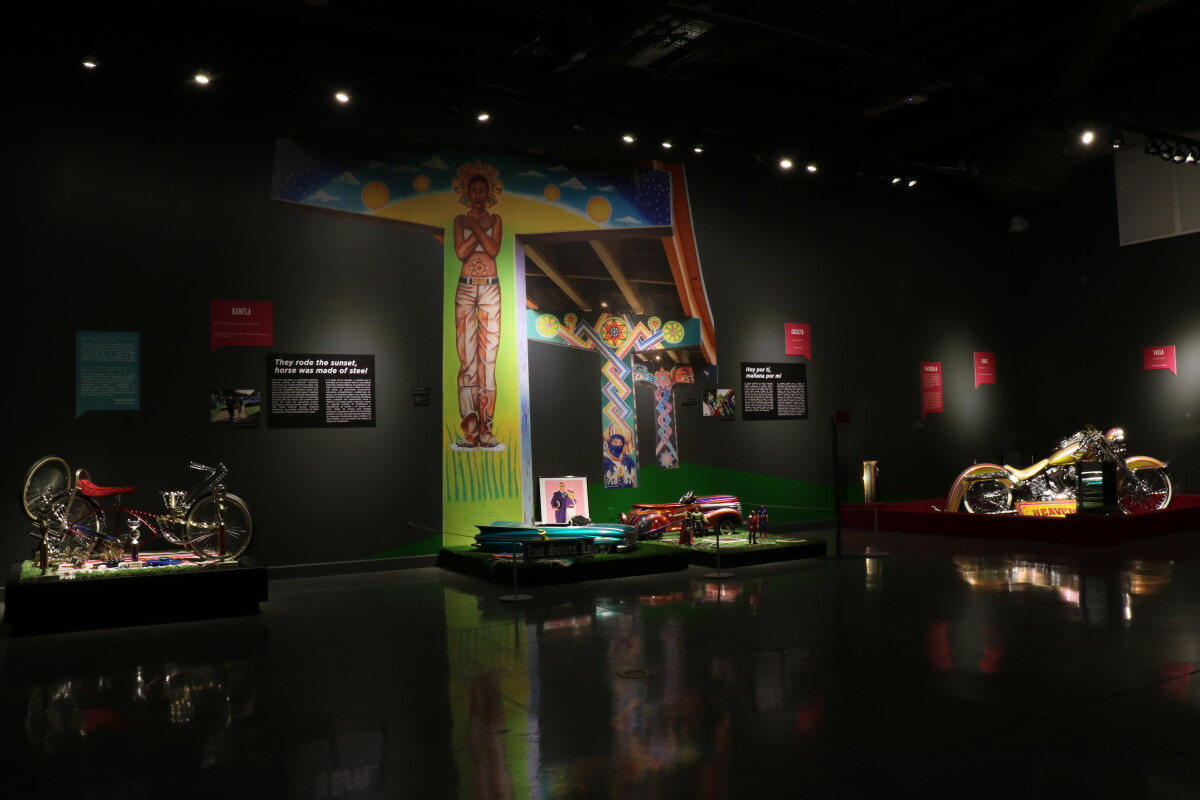
Low and Slow
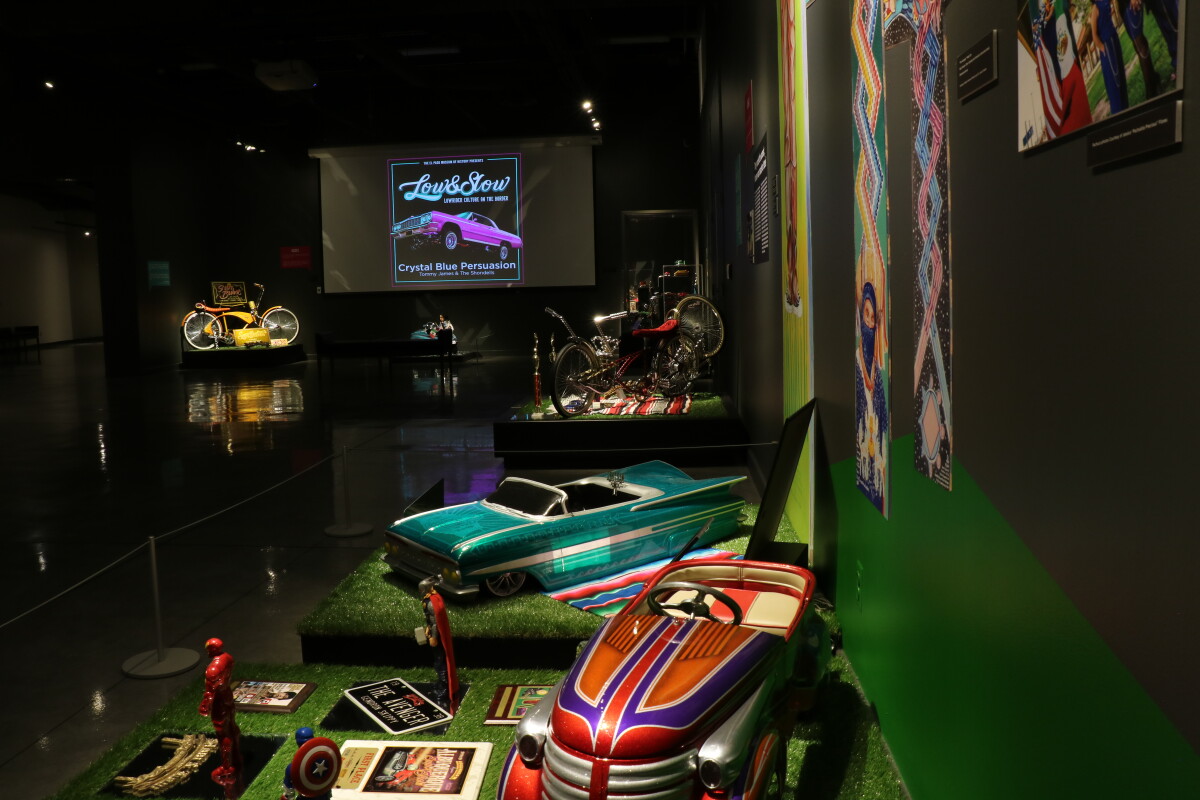
Low and Slow
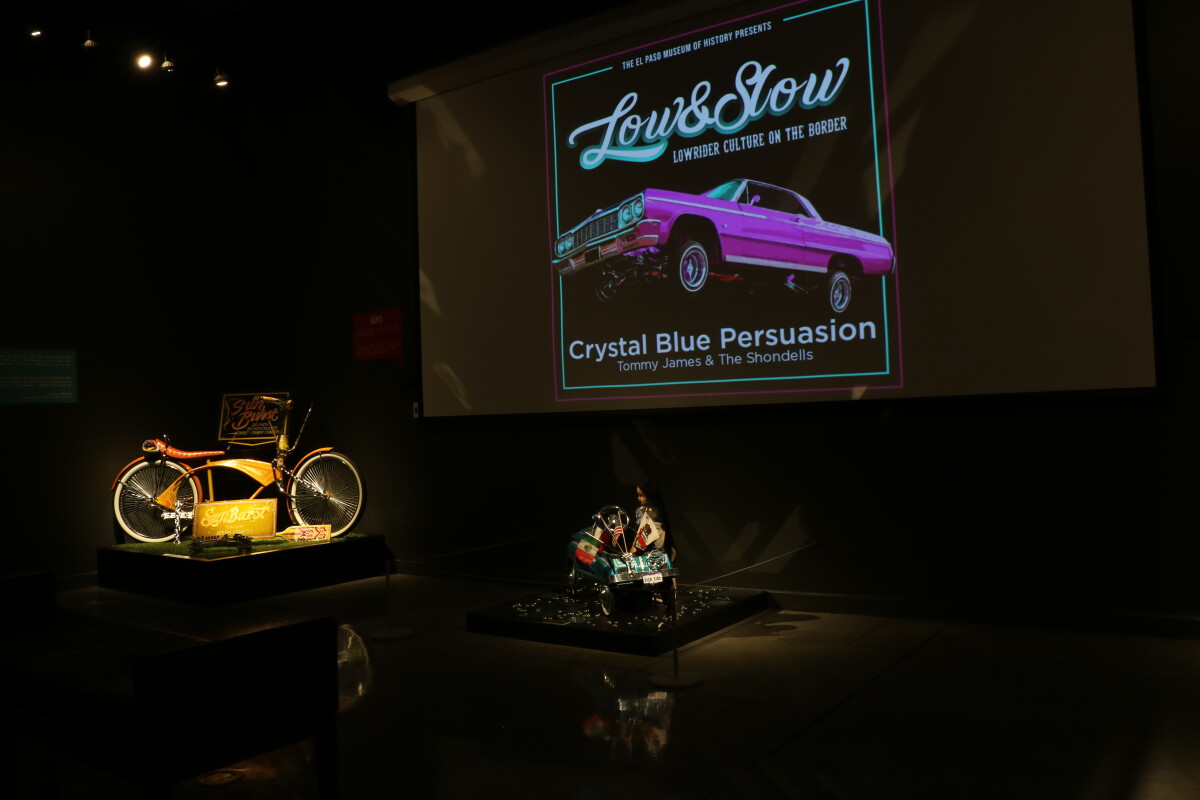
Low and Slow
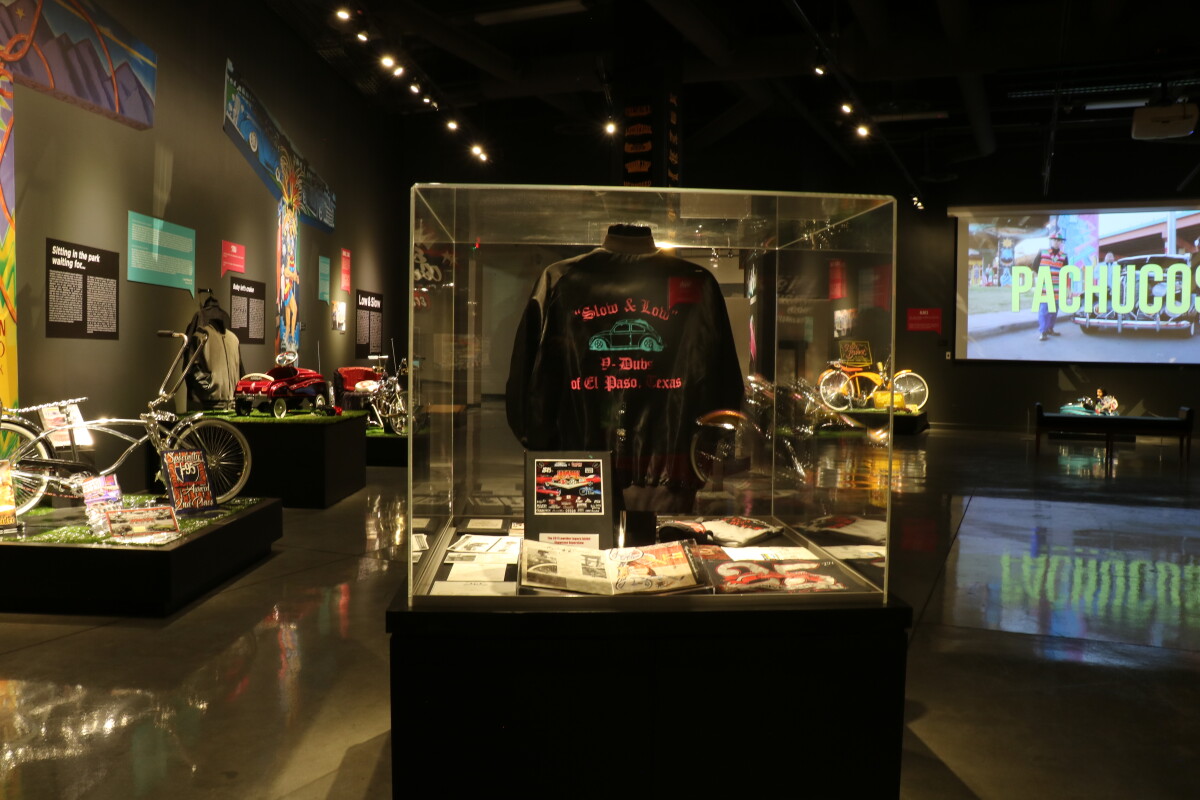
Low and Slow
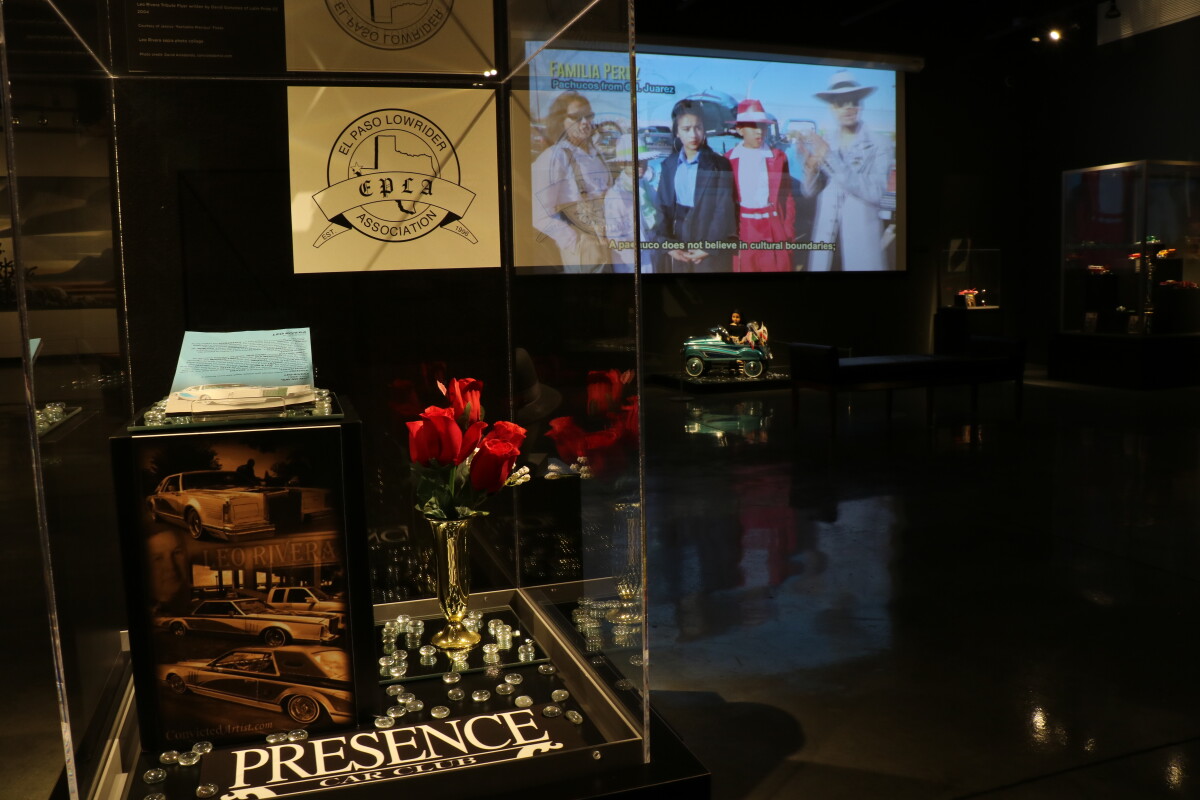
Low and Slow
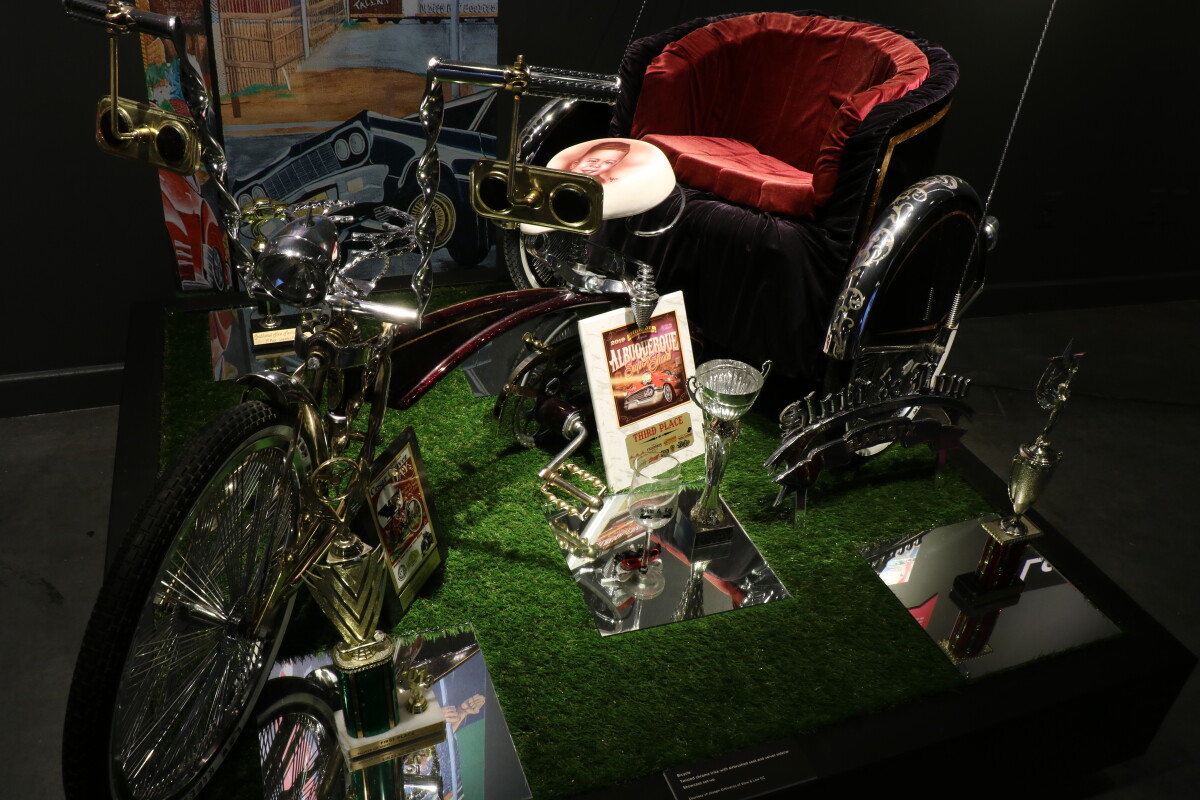
Low and Slow
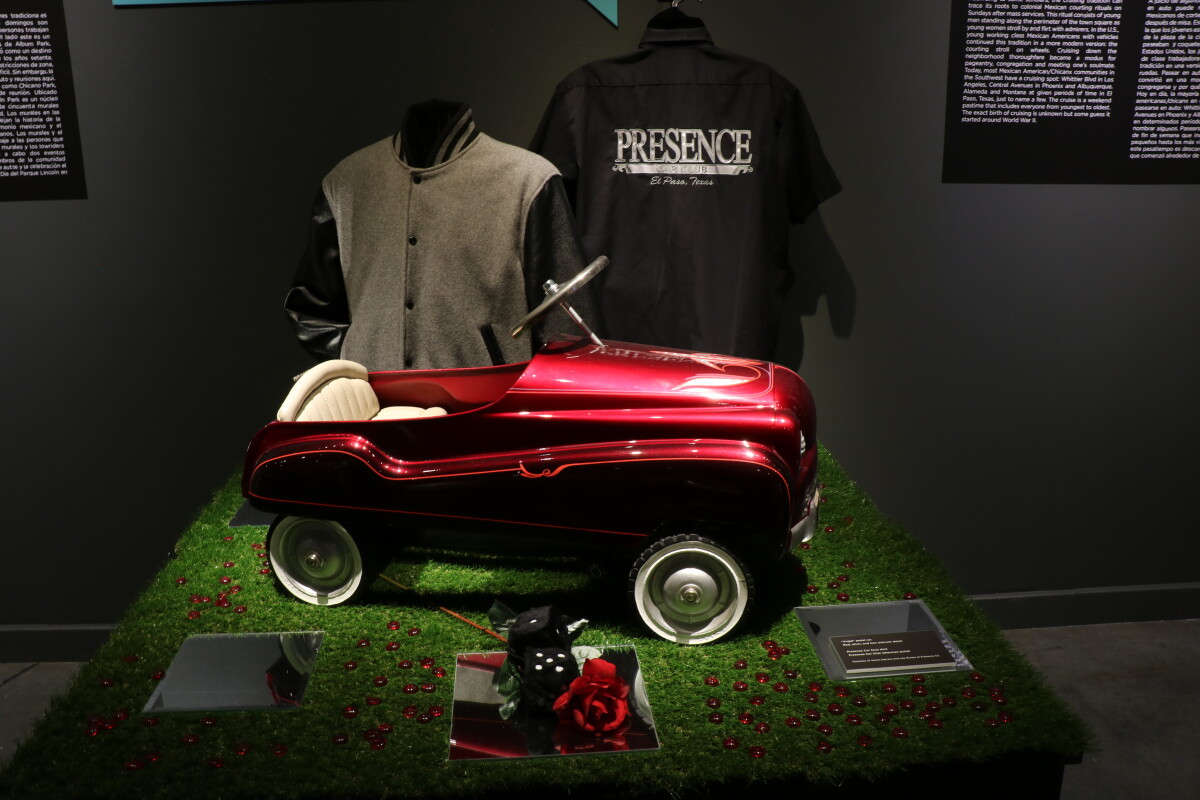
Low and Slow
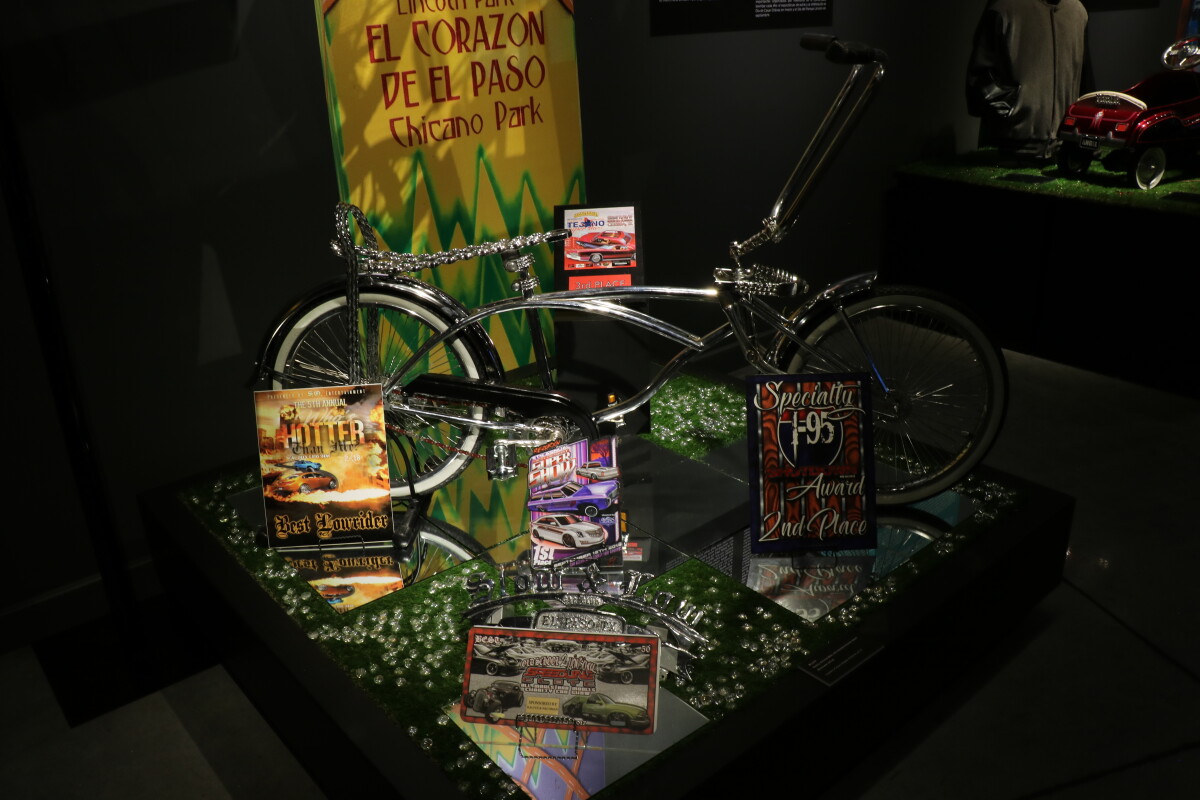
Low & Slow: Lowrider Culture On The Border
In El Paso, Texas or Chuco, Tejas, the Lowrider is more than a weekend hobby. Lowriding is a way of life. It is not subculture to the Mexican American experience but part of a complex form of lived history and visual culture. It is a unique iteration of a deeply rooted tradition in auto-mobility. In El Paso, the lowrider could trace its earliest roots to the 1940s, most notably after the Second World War. Arguably, the trend originated in California and made its way to Texas. With the resurgence of full-scale car production after the war, affordable vehicles allowed the working class to access their own ranflas. By the 1970’s, lowriding was a well-known past time representative of a unique brand of “Americanness.” Lowriders were also part of a larger expression that included pachucos/pachucas with their zoot suit styling and cruising. This included an affinity for listening to “oldies.’’ The lowrider lifestyle with all its panache and florid expression is also a form of self-determination in the American visual landscape: a belief that Mexican-Americans resist mainstream aesthetics in favor of their own canon. In other words, to ride on one’s own terms, low & slow with ‘stilo. Low and Slow: Lowrider Culture on the Border has been made possible in part by a major grant from the National Endowment for the Humanities: Exploring the human endeavor. Any views, findings, conclusions, or recommendations expressed in this exhibition, do not necessarily represent those of the National Endowment for the Humanities.
Area: Central / Downtown
Source: El Paso Museum of History
Uploaded by: El Paso Museum of History
Low & Slow: Lowrider Culture On The Border
In El Paso, Texas or Chuco, Tejas, the Lowrider is more than a weekend hobby. Lowriding is a way of life. It is not subculture to the Mexican American experience but part of a complex form of lived history and visual culture. It is a unique iteration of a deeply rooted tradition in auto-mobility. In El Paso, the lowrider could trace its earliest roots to the 1940s, most notably after the Second World War. Arguably, the trend originated in California and made its way to Texas. With the resurgence of full-scale car production after the war, affordable vehicles allowed the working class to access their own ranflas. By the 1970’s, lowriding was a well-known past time representative of a unique brand of “Americanness.” Lowriders were also part of a larger expression that included pachucos/pachucas with their zoot suit styling and cruising. This included an affinity for listening to “oldies.’’ The lowrider lifestyle with all its panache and florid expression is also a form of self-determination in the American visual landscape: a belief that Mexican-Americans resist mainstream aesthetics in favor of their own canon. In other words, to ride on one’s own terms, low & slow with ‘stilo. Low and Slow: Lowrider Culture on the Border has been made possible in part by a major grant from the National Endowment for the Humanities: Exploring the human endeavor. Any views, findings, conclusions, or recommendations expressed in this exhibition, do not necessarily represent those of the National Endowment for the Humanities.
Area: Central / Downtown
Source: El Paso Museum of History
Uploaded by: El Paso Museum of History
Low & Slow: Lowrider Culture On The Border
In El Paso, Texas or Chuco, Tejas, the Lowrider is more than a weekend hobby. Lowriding is a way of life. It is not subculture to the Mexican American experience but part of a complex form of lived history and visual culture. It is a unique iteration of a deeply rooted tradition in auto-mobility. In El Paso, the lowrider could trace its earliest roots to the 1940s, most notably after the Second World War. Arguably, the trend originated in California and made its way to Texas. With the resurgence of full-scale car production after the war, affordable vehicles allowed the working class to access their own ranflas. By the 1970’s, lowriding was a well-known past time representative of a unique brand of “Americanness.” Lowriders were also part of a larger expression that included pachucos/pachucas with their zoot suit styling and cruising. This included an affinity for listening to “oldies.’’ The lowrider lifestyle with all its panache and florid expression is also a form of self-determination in the American visual landscape: a belief that Mexican-Americans resist mainstream aesthetics in favor of their own canon. In other words, to ride on one’s own terms, low & slow with ‘stilo. Low and Slow: Lowrider Culture on the Border has been made possible in part by a major grant from the National Endowment for the Humanities: Exploring the human endeavor. Any views, findings, conclusions, or recommendations expressed in this exhibition, do not necessarily represent those of the National Endowment for the Humanities.
Area: Central / Downtown
Source: El Paso Museum of History
Uploaded by: El Paso Museum of History
Low & Slow: Lowrider Culture On The Border
In El Paso, Texas or Chuco, Tejas, the Lowrider is more than a weekend hobby. Lowriding is a way of life. It is not subculture to the Mexican American experience but part of a complex form of lived history and visual culture. It is a unique iteration of a deeply rooted tradition in auto-mobility. In El Paso, the lowrider could trace its earliest roots to the 1940s, most notably after the Second World War. Arguably, the trend originated in California and made its way to Texas. With the resurgence of full-scale car production after the war, affordable vehicles allowed the working class to access their own ranflas. By the 1970’s, lowriding was a well-known past time representative of a unique brand of “Americanness.” Lowriders were also part of a larger expression that included pachucos/pachucas with their zoot suit styling and cruising. This included an affinity for listening to “oldies.’’ The lowrider lifestyle with all its panache and florid expression is also a form of self-determination in the American visual landscape: a belief that Mexican-Americans resist mainstream aesthetics in favor of their own canon. In other words, to ride on one’s own terms, low & slow with ‘stilo. Low and Slow: Lowrider Culture on the Border has been made possible in part by a major grant from the National Endowment for the Humanities: Exploring the human endeavor. Any views, findings, conclusions, or recommendations expressed in this exhibition, do not necessarily represent those of the National Endowment for the Humanities.
Area: Central / Downtown
Source: El Paso Museum of History
Uploaded by: El Paso Museum of History
Low & Slow: Lowrider Culture On The Border
In El Paso, Texas or Chuco, Tejas, the Lowrider is more than a weekend hobby. Lowriding is a way of life. It is not subculture to the Mexican American experience but part of a complex form of lived history and visual culture. It is a unique iteration of a deeply rooted tradition in auto-mobility. In El Paso, the lowrider could trace its earliest roots to the 1940s, most notably after the Second World War. Arguably, the trend originated in California and made its way to Texas. With the resurgence of full-scale car production after the war, affordable vehicles allowed the working class to access their own ranflas. By the 1970’s, lowriding was a well-known past time representative of a unique brand of “Americanness.” Lowriders were also part of a larger expression that included pachucos/pachucas with their zoot suit styling and cruising. This included an affinity for listening to “oldies.’’ The lowrider lifestyle with all its panache and florid expression is also a form of self-determination in the American visual landscape: a belief that Mexican-Americans resist mainstream aesthetics in favor of their own canon. In other words, to ride on one’s own terms, low & slow with ‘stilo. Low and Slow: Lowrider Culture on the Border has been made possible in part by a major grant from the National Endowment for the Humanities: Exploring the human endeavor. Any views, findings, conclusions, or recommendations expressed in this exhibition, do not necessarily represent those of the National Endowment for the Humanities.
Area: Central / Downtown
Source: El Paso Museum of History
Uploaded by: El Paso Museum of History
Low & Slow: Lowrider Culture On The Border
In El Paso, Texas or Chuco, Tejas, the Lowrider is more than a weekend hobby. Lowriding is a way of life. It is not subculture to the Mexican American experience but part of a complex form of lived history and visual culture. It is a unique iteration of a deeply rooted tradition in auto-mobility. In El Paso, the lowrider could trace its earliest roots to the 1940s, most notably after the Second World War. Arguably, the trend originated in California and made its way to Texas. With the resurgence of full-scale car production after the war, affordable vehicles allowed the working class to access their own ranflas. By the 1970’s, lowriding was a well-known past time representative of a unique brand of “Americanness.” Lowriders were also part of a larger expression that included pachucos/pachucas with their zoot suit styling and cruising. This included an affinity for listening to “oldies.’’ The lowrider lifestyle with all its panache and florid expression is also a form of self-determination in the American visual landscape: a belief that Mexican-Americans resist mainstream aesthetics in favor of their own canon. In other words, to ride on one’s own terms, low & slow with ‘stilo. Low and Slow: Lowrider Culture on the Border has been made possible in part by a major grant from the National Endowment for the Humanities: Exploring the human endeavor. Any views, findings, conclusions, or recommendations expressed in this exhibition, do not necessarily represent those of the National Endowment for the Humanities.
Area: Central / Downtown
Source: El Paso Museum of History
Uploaded by: El Paso Museum of History
Low & Slow: Lowrider Culture On The Border
In El Paso, Texas or Chuco, Tejas, the Lowrider is more than a weekend hobby. Lowriding is a way of life. It is not subculture to the Mexican American experience but part of a complex form of lived history and visual culture. It is a unique iteration of a deeply rooted tradition in auto-mobility. In El Paso, the lowrider could trace its earliest roots to the 1940s, most notably after the Second World War. Arguably, the trend originated in California and made its way to Texas. With the resurgence of full-scale car production after the war, affordable vehicles allowed the working class to access their own ranflas. By the 1970’s, lowriding was a well-known past time representative of a unique brand of “Americanness.” Lowriders were also part of a larger expression that included pachucos/pachucas with their zoot suit styling and cruising. This included an affinity for listening to “oldies.’’ The lowrider lifestyle with all its panache and florid expression is also a form of self-determination in the American visual landscape: a belief that Mexican-Americans resist mainstream aesthetics in favor of their own canon. In other words, to ride on one’s own terms, low & slow with ‘stilo. Low and Slow: Lowrider Culture on the Border has been made possible in part by a major grant from the National Endowment for the Humanities: Exploring the human endeavor. Any views, findings, conclusions, or recommendations expressed in this exhibition, do not necessarily represent those of the National Endowment for the Humanities.
Area: Central / Downtown
Source: El Paso Museum of History
Uploaded by: El Paso Museum of History
Low & Slow: Lowrider Culture On The Border
In El Paso, Texas or Chuco, Tejas, the Lowrider is more than a weekend hobby. Lowriding is a way of life. It is not subculture to the Mexican American experience but part of a complex form of lived history and visual culture. It is a unique iteration of a deeply rooted tradition in auto-mobility. In El Paso, the lowrider could trace its earliest roots to the 1940s, most notably after the Second World War. Arguably, the trend originated in California and made its way to Texas. With the resurgence of full-scale car production after the war, affordable vehicles allowed the working class to access their own ranflas. By the 1970’s, lowriding was a well-known past time representative of a unique brand of “Americanness.” Lowriders were also part of a larger expression that included pachucos/pachucas with their zoot suit styling and cruising. This included an affinity for listening to “oldies.’’ The lowrider lifestyle with all its panache and florid expression is also a form of self-determination in the American visual landscape: a belief that Mexican-Americans resist mainstream aesthetics in favor of their own canon. In other words, to ride on one’s own terms, low & slow with ‘stilo. Low and Slow: Lowrider Culture on the Border has been made possible in part by a major grant from the National Endowment for the Humanities: Exploring the human endeavor. Any views, findings, conclusions, or recommendations expressed in this exhibition, do not necessarily represent those of the National Endowment for the Humanities.
Area: Central / Downtown
Source: El Paso Museum of History
Uploaded by: El Paso Museum of History
Low & Slow: Lowrider Culture On The Border
In El Paso, Texas or Chuco, Tejas, the Lowrider is more than a weekend hobby. Lowriding is a way of life. It is not subculture to the Mexican American experience but part of a complex form of lived history and visual culture. It is a unique iteration of a deeply rooted tradition in auto-mobility. In El Paso, the lowrider could trace its earliest roots to the 1940s, most notably after the Second World War. Arguably, the trend originated in California and made its way to Texas. With the resurgence of full-scale car production after the war, affordable vehicles allowed the working class to access their own ranflas. By the 1970’s, lowriding was a well-known past time representative of a unique brand of “Americanness.” Lowriders were also part of a larger expression that included pachucos/pachucas with their zoot suit styling and cruising. This included an affinity for listening to “oldies.’’ The lowrider lifestyle with all its panache and florid expression is also a form of self-determination in the American visual landscape: a belief that Mexican-Americans resist mainstream aesthetics in favor of their own canon. In other words, to ride on one’s own terms, low & slow with ‘stilo. Low and Slow: Lowrider Culture on the Border has been made possible in part by a major grant from the National Endowment for the Humanities: Exploring the human endeavor. Any views, findings, conclusions, or recommendations expressed in this exhibition, do not necessarily represent those of the National Endowment for the Humanities.
Area: Central / Downtown
Source: El Paso Museum of History
Uploaded by: El Paso Museum of History
Low & Slow: Lowrider Culture On The Border
In El Paso, Texas or Chuco, Tejas, the Lowrider is more than a weekend hobby. Lowriding is a way of life. It is not subculture to the Mexican American experience but part of a complex form of lived history and visual culture. It is a unique iteration of a deeply rooted tradition in auto-mobility. In El Paso, the lowrider could trace its earliest roots to the 1940s, most notably after the Second World War. Arguably, the trend originated in California and made its way to Texas. With the resurgence of full-scale car production after the war, affordable vehicles allowed the working class to access their own ranflas. By the 1970’s, lowriding was a well-known past time representative of a unique brand of “Americanness.” Lowriders were also part of a larger expression that included pachucos/pachucas with their zoot suit styling and cruising. This included an affinity for listening to “oldies.’’ The lowrider lifestyle with all its panache and florid expression is also a form of self-determination in the American visual landscape: a belief that Mexican-Americans resist mainstream aesthetics in favor of their own canon. In other words, to ride on one’s own terms, low & slow with ‘stilo. Low and Slow: Lowrider Culture on the Border has been made possible in part by a major grant from the National Endowment for the Humanities: Exploring the human endeavor. Any views, findings, conclusions, or recommendations expressed in this exhibition, do not necessarily represent those of the National Endowment for the Humanities.
Area: Central / Downtown
Source: El Paso Museum of History
Uploaded by: El Paso Museum of History
Low & Slow: Lowrider Culture On The Border
In El Paso, Texas or Chuco, Tejas, the Lowrider is more than a weekend hobby. Lowriding is a way of life. It is not subculture to the Mexican American experience but part of a complex form of lived history and visual culture. It is a unique iteration of a deeply rooted tradition in auto-mobility. In El Paso, the lowrider could trace its earliest roots to the 1940s, most notably after the Second World War. Arguably, the trend originated in California and made its way to Texas. With the resurgence of full-scale car production after the war, affordable vehicles allowed the working class to access their own ranflas. By the 1970’s, lowriding was a well-known past time representative of a unique brand of “Americanness.” Lowriders were also part of a larger expression that included pachucos/pachucas with their zoot suit styling and cruising. This included an affinity for listening to “oldies.’’ The lowrider lifestyle with all its panache and florid expression is also a form of self-determination in the American visual landscape: a belief that Mexican-Americans resist mainstream aesthetics in favor of their own canon. In other words, to ride on one’s own terms, low & slow with ‘stilo. Low and Slow: Lowrider Culture on the Border has been made possible in part by a major grant from the National Endowment for the Humanities: Exploring the human endeavor. Any views, findings, conclusions, or recommendations expressed in this exhibition, do not necessarily represent those of the National Endowment for the Humanities.
Area: Central / Downtown
Source: El Paso Museum of History
Uploaded by: El Paso Museum of History
Low & Slow: Lowrider Culture On The Border
In El Paso, Texas or Chuco, Tejas, the Lowrider is more than a weekend hobby. Lowriding is a way of life. It is not subculture to the Mexican American experience but part of a complex form of lived history and visual culture. It is a unique iteration of a deeply rooted tradition in auto-mobility. In El Paso, the lowrider could trace its earliest roots to the 1940s, most notably after the Second World War. Arguably, the trend originated in California and made its way to Texas. With the resurgence of full-scale car production after the war, affordable vehicles allowed the working class to access their own ranflas. By the 1970’s, lowriding was a well-known past time representative of a unique brand of “Americanness.” Lowriders were also part of a larger expression that included pachucos/pachucas with their zoot suit styling and cruising. This included an affinity for listening to “oldies.’’ The lowrider lifestyle with all its panache and florid expression is also a form of self-determination in the American visual landscape: a belief that Mexican-Americans resist mainstream aesthetics in favor of their own canon. In other words, to ride on one’s own terms, low & slow with ‘stilo. Low and Slow: Lowrider Culture on the Border has been made possible in part by a major grant from the National Endowment for the Humanities: Exploring the human endeavor. Any views, findings, conclusions, or recommendations expressed in this exhibition, do not necessarily represent those of the National Endowment for the Humanities.
Area: Central / Downtown
Source: El Paso Museum of History
Uploaded by: El Paso Museum of History
Low & Slow: Lowrider Culture On The Border
In El Paso, Texas or Chuco, Tejas, the Lowrider is more than a weekend hobby. Lowriding is a way of life. It is not subculture to the Mexican American experience but part of a complex form of lived history and visual culture. It is a unique iteration of a deeply rooted tradition in auto-mobility. In El Paso, the lowrider could trace its earliest roots to the 1940s, most notably after the Second World War. Arguably, the trend originated in California and made its way to Texas. With the resurgence of full-scale car production after the war, affordable vehicles allowed the working class to access their own ranflas. By the 1970’s, lowriding was a well-known past time representative of a unique brand of “Americanness.” Lowriders were also part of a larger expression that included pachucos/pachucas with their zoot suit styling and cruising. This included an affinity for listening to “oldies.’’ The lowrider lifestyle with all its panache and florid expression is also a form of self-determination in the American visual landscape: a belief that Mexican-Americans resist mainstream aesthetics in favor of their own canon. In other words, to ride on one’s own terms, low & slow with ‘stilo. Low and Slow: Lowrider Culture on the Border has been made possible in part by a major grant from the National Endowment for the Humanities: Exploring the human endeavor. Any views, findings, conclusions, or recommendations expressed in this exhibition, do not necessarily represent those of the National Endowment for the Humanities.
Area: Central / Downtown
Source: El Paso Museum of History
Uploaded by: El Paso Museum of History
Low & Slow: Lowrider Culture On The Border
In El Paso, Texas or Chuco, Tejas, the Lowrider is more than a weekend hobby. Lowriding is a way of life. It is not subculture to the Mexican American experience but part of a complex form of lived history and visual culture. It is a unique iteration of a deeply rooted tradition in auto-mobility. In El Paso, the lowrider could trace its earliest roots to the 1940s, most notably after the Second World War. Arguably, the trend originated in California and made its way to Texas. With the resurgence of full-scale car production after the war, affordable vehicles allowed the working class to access their own ranflas. By the 1970’s, lowriding was a well-known past time representative of a unique brand of “Americanness.” Lowriders were also part of a larger expression that included pachucos/pachucas with their zoot suit styling and cruising. This included an affinity for listening to “oldies.’’ The lowrider lifestyle with all its panache and florid expression is also a form of self-determination in the American visual landscape: a belief that Mexican-Americans resist mainstream aesthetics in favor of their own canon. In other words, to ride on one’s own terms, low & slow with ‘stilo. Low and Slow: Lowrider Culture on the Border has been made possible in part by a major grant from the National Endowment for the Humanities: Exploring the human endeavor. Any views, findings, conclusions, or recommendations expressed in this exhibition, do not necessarily represent those of the National Endowment for the Humanities.
Area: Central / Downtown
Source: El Paso Museum of History
Uploaded by: El Paso Museum of History
Low & Slow: Lowrider Culture On The Border
In El Paso, Texas or Chuco, Tejas, the Lowrider is more than a weekend hobby. Lowriding is a way of life. It is not subculture to the Mexican American experience but part of a complex form of lived history and visual culture. It is a unique iteration of a deeply rooted tradition in auto-mobility. In El Paso, the lowrider could trace its earliest roots to the 1940s, most notably after the Second World War. Arguably, the trend originated in California and made its way to Texas. With the resurgence of full-scale car production after the war, affordable vehicles allowed the working class to access their own ranflas. By the 1970’s, lowriding was a well-known past time representative of a unique brand of “Americanness.” Lowriders were also part of a larger expression that included pachucos/pachucas with their zoot suit styling and cruising. This included an affinity for listening to “oldies.’’ The lowrider lifestyle with all its panache and florid expression is also a form of self-determination in the American visual landscape: a belief that Mexican-Americans resist mainstream aesthetics in favor of their own canon. In other words, to ride on one’s own terms, low & slow with ‘stilo. Low and Slow: Lowrider Culture on the Border has been made possible in part by a major grant from the National Endowment for the Humanities: Exploring the human endeavor. Any views, findings, conclusions, or recommendations expressed in this exhibition, do not necessarily represent those of the National Endowment for the Humanities.
Area: Central / Downtown
Source: El Paso Museum of History
Uploaded by: El Paso Museum of History
Low & Slow: Lowrider Culture On The Border
In El Paso, Texas or Chuco, Tejas, the Lowrider is more than a weekend hobby. Lowriding is a way of life. It is not subculture to the Mexican American experience but part of a complex form of lived history and visual culture. It is a unique iteration of a deeply rooted tradition in auto-mobility. In El Paso, the lowrider could trace its earliest roots to the 1940s, most notably after the Second World War. Arguably, the trend originated in California and made its way to Texas. With the resurgence of full-scale car production after the war, affordable vehicles allowed the working class to access their own ranflas. By the 1970’s, lowriding was a well-known past time representative of a unique brand of “Americanness.” Lowriders were also part of a larger expression that included pachucos/pachucas with their zoot suit styling and cruising. This included an affinity for listening to “oldies.’’ The lowrider lifestyle with all its panache and florid expression is also a form of self-determination in the American visual landscape: a belief that Mexican-Americans resist mainstream aesthetics in favor of their own canon. In other words, to ride on one’s own terms, low & slow with ‘stilo. Low and Slow: Lowrider Culture on the Border has been made possible in part by a major grant from the National Endowment for the Humanities: Exploring the human endeavor. Any views, findings, conclusions, or recommendations expressed in this exhibition, do not necessarily represent those of the National Endowment for the Humanities.
Area: Central / Downtown
Source: El Paso Museum of History
Uploaded by: El Paso Museum of History
Low & Slow: Lowrider Culture On The Border
In El Paso, Texas or Chuco, Tejas, the Lowrider is more than a weekend hobby. Lowriding is a way of life. It is not subculture to the Mexican American experience but part of a complex form of lived history and visual culture. It is a unique iteration of a deeply rooted tradition in auto-mobility. In El Paso, the lowrider could trace its earliest roots to the 1940s, most notably after the Second World War. Arguably, the trend originated in California and made its way to Texas. With the resurgence of full-scale car production after the war, affordable vehicles allowed the working class to access their own ranflas. By the 1970’s, lowriding was a well-known past time representative of a unique brand of “Americanness.” Lowriders were also part of a larger expression that included pachucos/pachucas with their zoot suit styling and cruising. This included an affinity for listening to “oldies.’’ The lowrider lifestyle with all its panache and florid expression is also a form of self-determination in the American visual landscape: a belief that Mexican-Americans resist mainstream aesthetics in favor of their own canon. In other words, to ride on one’s own terms, low & slow with ‘stilo. Low and Slow: Lowrider Culture on the Border has been made possible in part by a major grant from the National Endowment for the Humanities: Exploring the human endeavor. Any views, findings, conclusions, or recommendations expressed in this exhibition, do not necessarily represent those of the National Endowment for the Humanities.
Area: Central / Downtown
Source: El Paso Museum of History
Uploaded by: El Paso Museum of History
Low & Slow: Lowrider Culture On The Border
In El Paso, Texas or Chuco, Tejas, the Lowrider is more than a weekend hobby. Lowriding is a way of life. It is not subculture to the Mexican American experience but part of a complex form of lived history and visual culture. It is a unique iteration of a deeply rooted tradition in auto-mobility. In El Paso, the lowrider could trace its earliest roots to the 1940s, most notably after the Second World War. Arguably, the trend originated in California and made its way to Texas. With the resurgence of full-scale car production after the war, affordable vehicles allowed the working class to access their own ranflas. By the 1970’s, lowriding was a well-known past time representative of a unique brand of “Americanness.” Lowriders were also part of a larger expression that included pachucos/pachucas with their zoot suit styling and cruising. This included an affinity for listening to “oldies.’’ The lowrider lifestyle with all its panache and florid expression is also a form of self-determination in the American visual landscape: a belief that Mexican-Americans resist mainstream aesthetics in favor of their own canon. In other words, to ride on one’s own terms, low & slow with ‘stilo. Low and Slow: Lowrider Culture on the Border has been made possible in part by a major grant from the National Endowment for the Humanities: Exploring the human endeavor. Any views, findings, conclusions, or recommendations expressed in this exhibition, do not necessarily represent those of the National Endowment for the Humanities.
Area: Central / Downtown
Source: El Paso Museum of History
Uploaded by: El Paso Museum of History
Low & Slow: Lowrider Culture On The Border
In El Paso, Texas or Chuco, Tejas, the Lowrider is more than a weekend hobby. Lowriding is a way of life. It is not subculture to the Mexican American experience but part of a complex form of lived history and visual culture. It is a unique iteration of a deeply rooted tradition in auto-mobility. In El Paso, the lowrider could trace its earliest roots to the 1940s, most notably after the Second World War. Arguably, the trend originated in California and made its way to Texas. With the resurgence of full-scale car production after the war, affordable vehicles allowed the working class to access their own ranflas. By the 1970’s, lowriding was a well-known past time representative of a unique brand of “Americanness.” Lowriders were also part of a larger expression that included pachucos/pachucas with their zoot suit styling and cruising. This included an affinity for listening to “oldies.’’ The lowrider lifestyle with all its panache and florid expression is also a form of self-determination in the American visual landscape: a belief that Mexican-Americans resist mainstream aesthetics in favor of their own canon. In other words, to ride on one’s own terms, low & slow with ‘stilo. Low and Slow: Lowrider Culture on the Border has been made possible in part by a major grant from the National Endowment for the Humanities: Exploring the human endeavor. Any views, findings, conclusions, or recommendations expressed in this exhibition, do not necessarily represent those of the National Endowment for the Humanities.
Area: Central / Downtown
Source: El Paso Museum of History
Uploaded by: El Paso Museum of History
Low & Slow: Lowrider Culture On The Border
In El Paso, Texas or Chuco, Tejas, the Lowrider is more than a weekend hobby. Lowriding is a way of life. It is not subculture to the Mexican American experience but part of a complex form of lived history and visual culture. It is a unique iteration of a deeply rooted tradition in auto-mobility. In El Paso, the lowrider could trace its earliest roots to the 1940s, most notably after the Second World War. Arguably, the trend originated in California and made its way to Texas. With the resurgence of full-scale car production after the war, affordable vehicles allowed the working class to access their own ranflas. By the 1970’s, lowriding was a well-known past time representative of a unique brand of “Americanness.” Lowriders were also part of a larger expression that included pachucos/pachucas with their zoot suit styling and cruising. This included an affinity for listening to “oldies.’’ The lowrider lifestyle with all its panache and florid expression is also a form of self-determination in the American visual landscape: a belief that Mexican-Americans resist mainstream aesthetics in favor of their own canon. In other words, to ride on one’s own terms, low & slow with ‘stilo. Low and Slow: Lowrider Culture on the Border has been made possible in part by a major grant from the National Endowment for the Humanities: Exploring the human endeavor. Any views, findings, conclusions, or recommendations expressed in this exhibition, do not necessarily represent those of the National Endowment for the Humanities.
Area: Central / Downtown
Source: El Paso Museum of History
Uploaded by: El Paso Museum of History
Low & Slow: Lowrider Culture On The Border
In El Paso, Texas or Chuco, Tejas, the Lowrider is more than a weekend hobby. Lowriding is a way of life. It is not subculture to the Mexican American experience but part of a complex form of lived history and visual culture. It is a unique iteration of a deeply rooted tradition in auto-mobility. In El Paso, the lowrider could trace its earliest roots to the 1940s, most notably after the Second World War. Arguably, the trend originated in California and made its way to Texas. With the resurgence of full-scale car production after the war, affordable vehicles allowed the working class to access their own ranflas. By the 1970’s, lowriding was a well-known past time representative of a unique brand of “Americanness.” Lowriders were also part of a larger expression that included pachucos/pachucas with their zoot suit styling and cruising. This included an affinity for listening to “oldies.’’ The lowrider lifestyle with all its panache and florid expression is also a form of self-determination in the American visual landscape: a belief that Mexican-Americans resist mainstream aesthetics in favor of their own canon. In other words, to ride on one’s own terms, low & slow with ‘stilo. Low and Slow: Lowrider Culture on the Border has been made possible in part by a major grant from the National Endowment for the Humanities: Exploring the human endeavor. Any views, findings, conclusions, or recommendations expressed in this exhibition, do not necessarily represent those of the National Endowment for the Humanities.
Area: Central / Downtown
Source: El Paso Museum of History
Uploaded by: El Paso Museum of History
Report this entry
More from the same community-collection
BRIO, El Paso Chihuahuas Mascot Enjoys BRIO Opening Day
Photo: Mascot enjoys opening day for BRIO - 2014. Sun ...
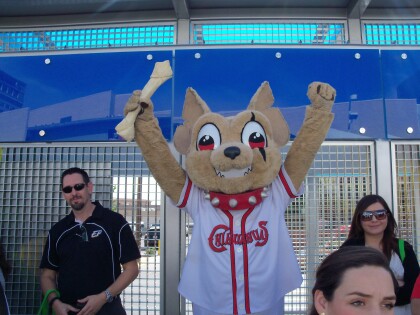
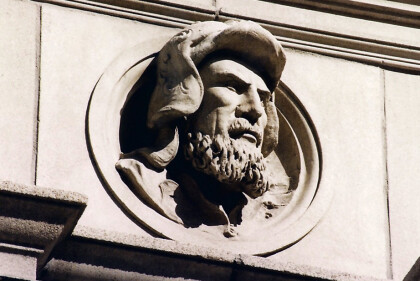
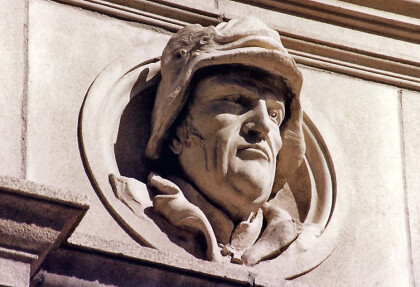
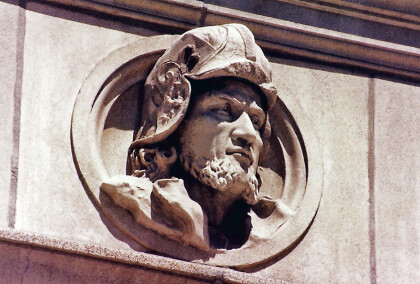
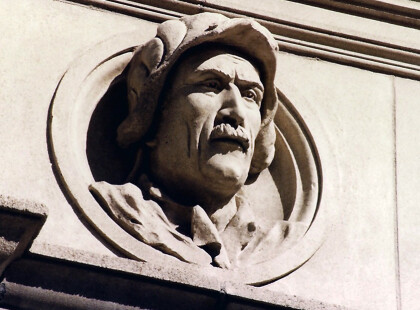
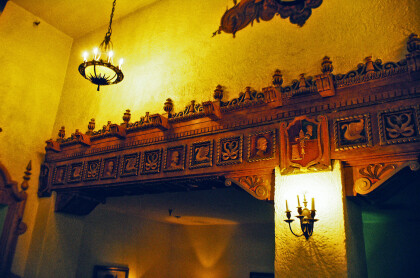
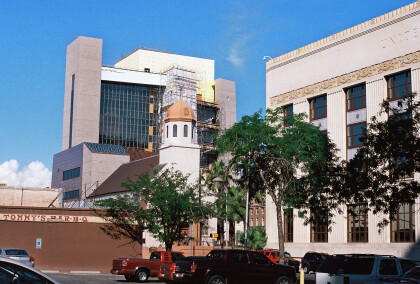
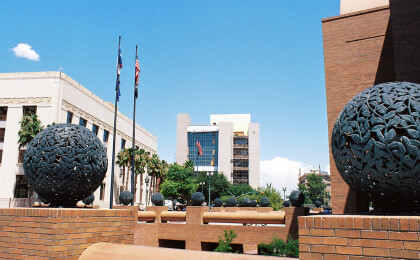

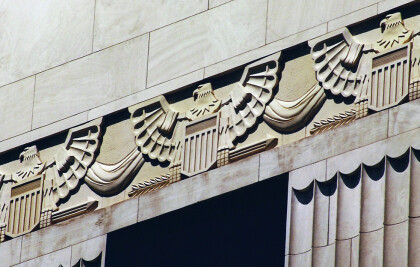
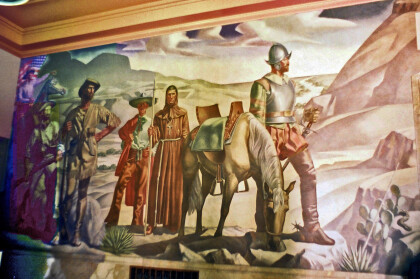
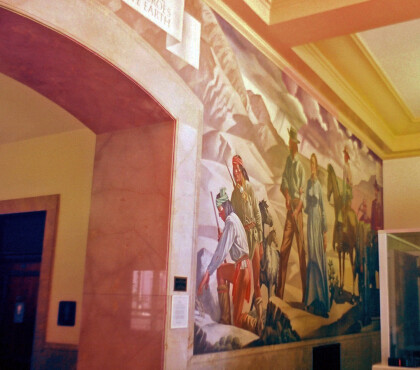
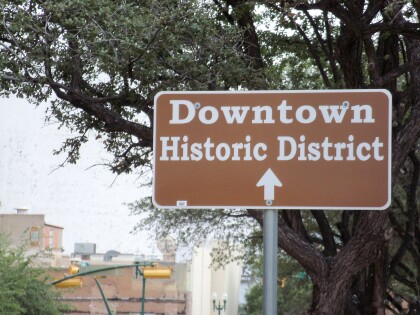
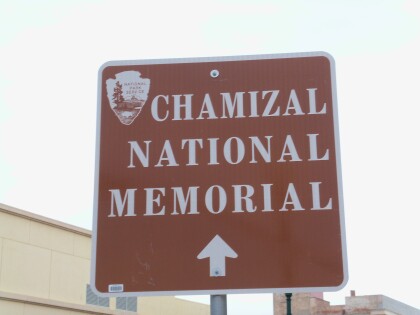
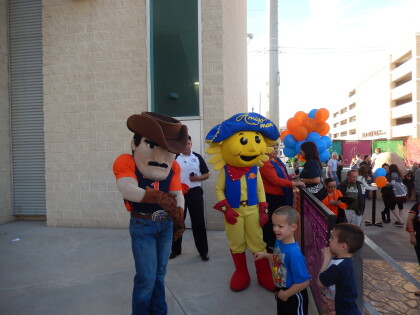
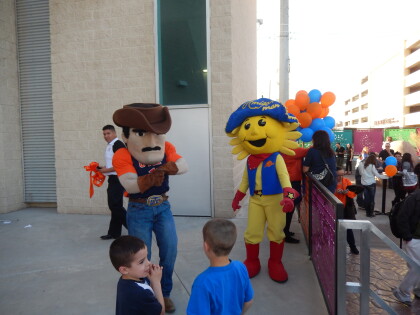
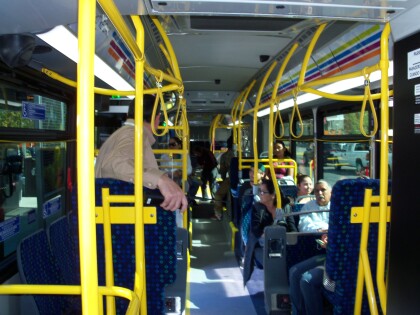
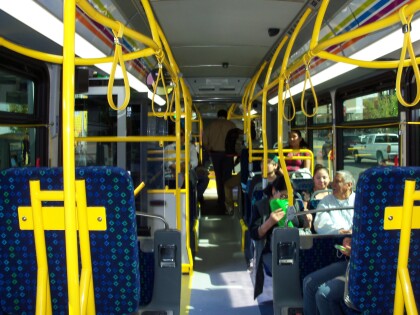
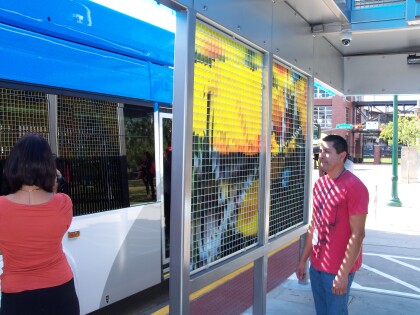
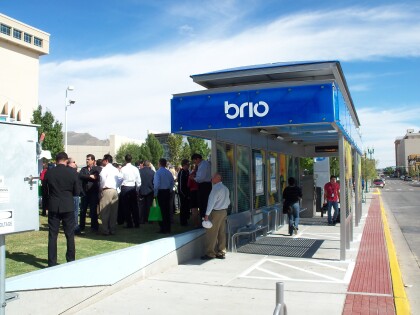
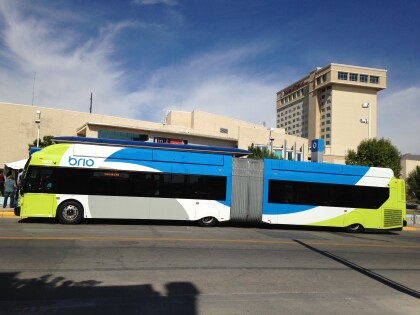
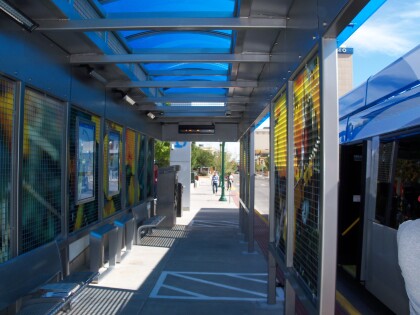
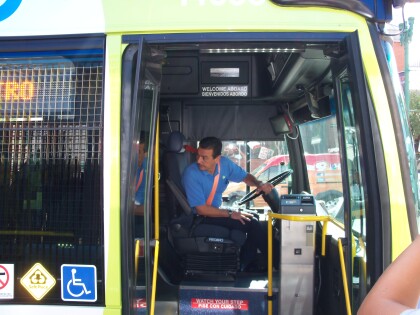
Comments
Add a comment